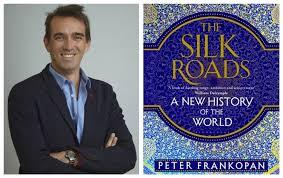
Peter Frankopan’s 2015 book, The Silk Roads: A New History of the World reveals much not known before — by the many who, as the song said (almost proudly) “don’t know much about history.” But though Frankopan claims to provide a corrective to a Western-centric view of history, no serious person thinks that way; so there’s nothing really new here.
It is a recap from early Medieval times, trying to put it all in context, as one big story. Though with huge swaths of the world, like Africa and Latin America, invisible. And Frankopan gives disproportionate space to recent decades, concentrating on his “Silk Road” countries, in and around Central Asia, which he says have always been the real hinge of world history.
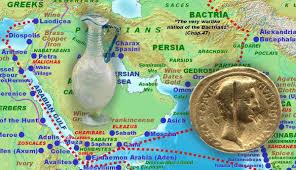
He includes there China and Russia — yet with hardly a word about the emergence of Communist rule in the former, or its fall in the latter. Obsessed with Iran, Iraq and Afghanistan, Frankopan is full of venom toward America, his bête noire, while soft-pedaling (if not ignoring outright) the sins of others.
He writes rhapsodically of his “Silk Road” nations as civilization’s vanguard — “a region being revived and restored to former glory.” What nonsense. Oil and other resource wealth figures greatly here, but Frankopan disregards those riches’ monopolization by corrupt elites. In fact, these are backward, benighted countries, unable to get on the path that the West trod, to build societies conducive to broad human flourishing. For me, that is the big world historical picture.
Nevertheless, the book did yield some more edifying takeaways:
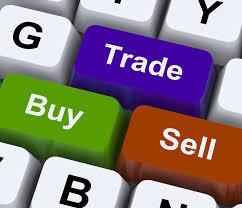
As its title suggests, trade looms large as a central driver of history, with money-making a defining human motivation. That, after all, is how people improve their lives. Yet “trade” has nowadays almost become a dirty word; especially (and more perversely) “free trade.” Focusing on downsides to the exclusion of vastly greater upsides. But as the book shows, trade makes societies richer in the aggregate, boosting the overall quality of human life.
Greed also looms large. Another overworked word. People do always try to get more for themselves, but the most prevalent method is getting others to willingly part with money in exchange for things they need or want. Again making everyone better off. And the world brims with such opportunities. My own nice business, buying and selling coins, benefits my suppliers and customers alike.
It isn’t that hard. Making me wonder at all those who instead employ their talents at ripping people off. Can such ill-gotten gains confer more happiness than justly earned ones? Achievable with less risk? But some do enjoy a feeling of getting something for nothing.

What “greed” really means is not just covetousness (a human universal) but its pursuit in disregard of ethical considerations. Buying and selling for profit is not unethical. Lying, cheating and stealing are. And Frankopan’s book makes depressingly clear how true unbridled greed — covetousness without moral bounds — has dominated human affairs throughout history. How very normal it has been. How accepted.
But the word “greed” being heard so often nowadays actually shows it’s becoming less accepted. Well, that’s some moral progress.
Meantime, greed’s great manifestation has been violence, in service to it. Scamming takes some cleverness; pillaging is simpler. Many decry how violent we are. But Frankopan’s book is a good reminder of just how violent we used to be, and how much progress there’s been (as famously documented in Steven Pinker’s The Better Angels of Our Nature).
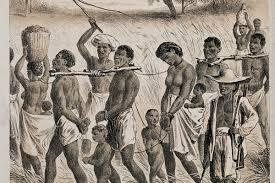
An aspect of violence in service to greed has been slavery. People have always exploited available resources for gain, and enslavement was no different — human beings there for the taking. Here again the book shows just how shockingly prevalent slavery was throughout history and throughout the world. (No, it wasn’t some beneficial job training program.) And here too there’s been huge progress.
Here’s a bit of history I did newly learn from this book — Frankopan does connect things into a bigger picture. One episode of greed run amok unfolded in India around 1770, where British East India Company poobahs lined their pockets at the expense of great human suffering, large scale famine. The crisis pushed the company to the brink of bankruptcy. The British government reluctantly agreed to a bail-out. Funding it required new revenues, which Britain decided to extract from its American colonies — with a tea tax.
Thus does one thing lead to another.
A footnote: Lord Cornwallis, after losing the Battle of Yorktown that sealed American independence, was made India’s governor-general.
“The Enlightenment” — which Frankopan bizarrely barely mentions — began about three centuries ago. Basically vaunting humanism — the idea of individual human dignity — and deployment of reason. This has been the motor for the immense progress we’ve since seen. Moral progress in terms of human dignity, and material advancement also achieved by prodigious application of rationality.
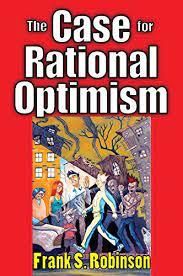
As argued in my own 2009 book, The Case for Rational Optimism (cited by Pinker). But it would be harder to write today.
Our Declaration of Independence (cited by Frankopan precisely once) was an Enlightenment manifesto, and America (for all its faults) has been a beacon for those values. We even issued a postage stamp declaring “America’s Light Fueled by Truth and Reason.” Today that light is dimming. With half our citizens in a deranged cult trampling truth and reason, hell-bent to elect as president a grotesquely wicked man who’s already tried to overthrow our democracy.

Democracy elsewhere, ascendant when I wrote in 2009, has gone into retreat. Thanks to electorates that “don’t know much about history,” making them vulnerable to other bad leaders who’ve learned how to manipulate them. Or, failing that, will use violence, as in Myanmar.
Vast violence has been unleashed by Russia’s Ukraine invasion. Recrudescing the ancient paradigm of just grabbing in defiance of morality. Here, the destruction and human suffering, incurred by both victim and aggressor, obliterate any conceivable gain to the latter, making its actions completely insane.

Another lesson from Frankopan’s book is how ultimately pointless and self-harming such efforts at conquests by force usually wind up being. Peaceful cooperation with neighbors is so much more beneficial.
One might think Ukraine is a cautionary tale for China. Yet China seems unswayably poised to replicate this psychopathic self-destructive madness by invading Taiwan.
Rage, rage against the dying of the light.
